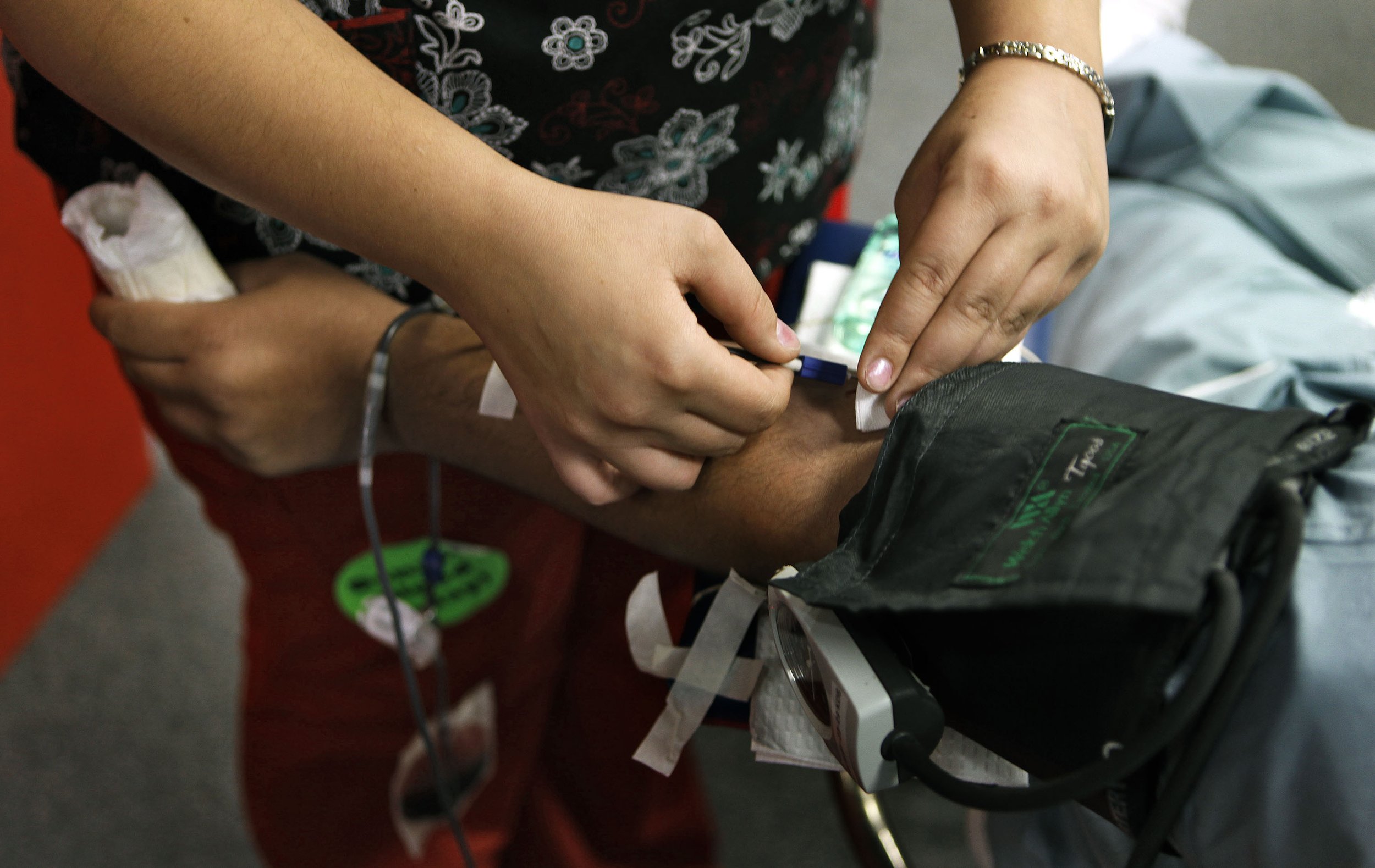Legislators call to end regulation against blood donations from gay men
/U.S. Reps. Alexandria Ocasio-Cortez and Carolyn Maloney are urging the federal government to change their current policy limiting gay men from donating blood amidst the first-ever national blood crisis. AP file photo by Chris O'Meara
By Rachel Vick
In the wake of the historic Jan. 11 announcement of the American Red Cross’ first-ever national blood crisis amid the surge of the Omicron variant, Queens congressmembers are calling for blood donation policies to catch up with 2022 and ensure all willing donors are able.
U.S. Reps. Alexandria Ocasio-Cortez and Carolyn Maloney joined a group of colleagues from across the country to urge the Food and Drug Administration to reevaluate blood donation policy that prevents gay and bisexual men from participating.
“The three-month deferral period continues to prevent gay and bisexual men from safely donating blood,” wrote the members. “In light of the urgent crisis facing America’s blood supply, we urge FDA to take immediate action to reassess the existing three-month blanket deferral period for gay and bisexual men so that every person who can safely donate blood in the United States has the opportunity to do so.”
“With the addition of an individualized risk-based assessment, the deferral period for all
donors in the United States—including [Men seeking Men]—could potentially be eliminated,” they continued, criticizing the existing policy which “continues to stigmatize gay and bisexual men and undermine crucial efforts to ensure an adequate and stable national blood supply.”
The letter follows an April 2020 message from the Queens representatives urging the agency to scale back a similar policy – previously, men who have sex with other men would have to wait a year after their last sexual encounter to donate blood. Following the April request, the wait period was shortened to 90 days.
A group of 22 senators issued a similar letter to the FDA and Department of Health and Human Services, urging the agencies to take the “long overdue” step.
The U.S. banned men who have sex with other men from donating blood during the AIDs crisis, and the rule was kept firmly in place until 2015.
In 2021, the organization experienced a 34 percent decrease in new donors, according to the Red Cross, and blood storages have dropped below one day supplies.
“Hospitals are still seeing accident victims, cancer patients, those with blood disorders like sickle cell disease, and individuals who are seriously ill who all need blood transfusions to live even as Omicron cases surge across the country,” said Dr. Pampee Young, chief medical officer of the Red Cross. “We’re doing everything we can to increase blood donations to ensure every patient can receive medical treatments without delay, but we cannot do it without more donors.”




